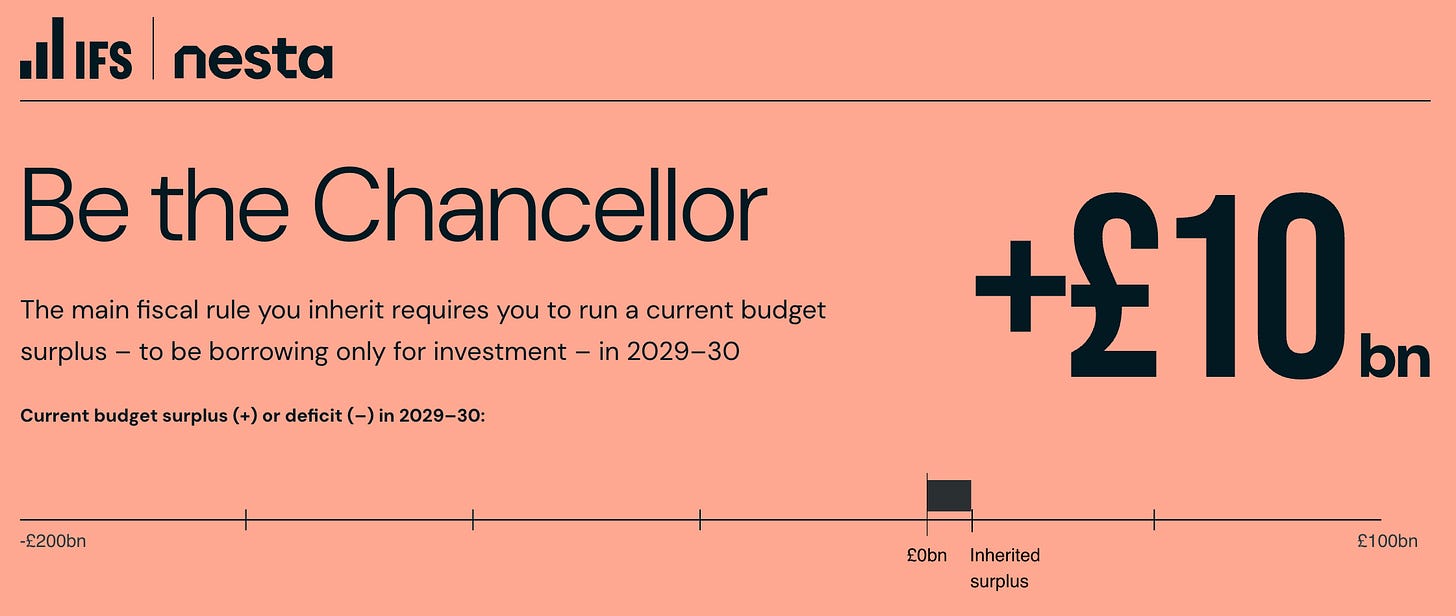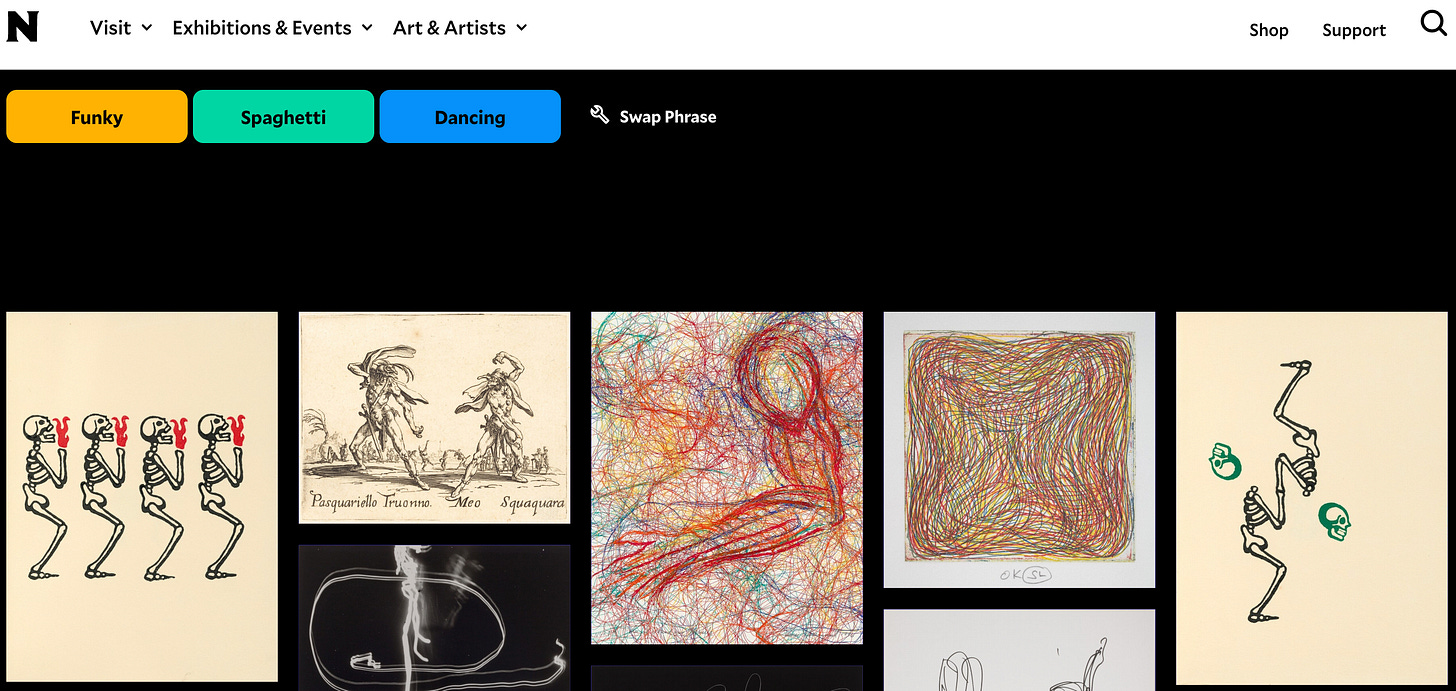Ahhhh, plates. Why must they all keep spinning?
Summer has been busy with end-of-year reports for Critical Action Lab, singing, filming and trying to stay afloat amidst the ceaseless stream of horror.
I remain somewhat cheery. How are you?
There follows a mixture of useful things, ambient things, fun things and a reflection on clarity.
I liked this quote about Mr Beast, YouTube’s leading “creator”:
“And that’s a thing that is rarely said about Donaldson’s whole project. This is a guy who grew up immersed in both evangelical protestantism and the YouTube clickbait economy, and whose earthly works have about them some strange, and I am guessing unconscious, quality of the theological. A man weeping in moral torment over bags of money; another so bored, depressed and isolated that he can barely raise his eyes to yet another shopping cart full of cash.”
And this from Rachel Donald, on life/work:
“Perhaps living, then, is not the consumption of energy, but its expenditure…The problem with people today is that they’re not tired enough…Not only are we still working, we continue working on our down time by becoming ad revenue for social media platforms, a mindless activity that requires far less energy than if we were to grow our own vegetables or build a makeshift carpentry atelier or simply cook from scratch.”
Useful advice on digital failure (and prototyping)
Ash Mann used to run digital studio Substrakt and now works independently for arts, culture and heritage organisations. He has a brilliant weekly newsletter, is starting a “digital community” (which reminds me of Rachel Coldicutt’s “Union for Hopeful Technologists”) and recently wrote a mega report called Beyond the Promise.
Having compiled hundreds of responses to a questionnaire about digital failure, Mann put together an incredibly well structured and presented summary. One doesn’t often see a “What does it mean for me?” section, with perspectives for funders, freelancers, team leaders etc. I recommend you at least scan the thing. Here are some nice nuggets:
Failure is often organisational not technical
Think slow, act fast!
Better progress is about small steps, collaboration and reflection
“Everything around us is evolving except the way we work” Amy Maiden.
“Success is fixing our mistakes rather than getting things right first time.” Tim Harford
Prototyping
StoryThings (also digital + content + culture + great newsletter) has been writing a series on prototyping. Here is one of their reframes: “Instead of using audience tests to find out if people like your content, you should start by asking how they would find the time to give it attention in the first place.”
In other words, this is about better understanding the “use case”. Some suggested tactics include:
Find the gaps and frustrations you could address
Build on existing routines or habits
Conduct “just enough” research to make a decision
Small, fun things
I daren’t call this a game, but it’s a game approach to shedding light on the UK’s budget.
Walkie Talkie. Smart combination of old and new: audio guides, QR codes and yes, it begins with A and ends with Intelligence.
Art Vibes is an experience in the same lineage as Magic Tate Ball (ambient data) or Send Me SFMoMA (natural language processing) Chose your input words and get back some art!
A lovely, short article on caring in a world of growing nihilism, AI slop and attention decay.
That pesky word “clarity”
On the occasions you make time to reflect on a collaborative endeavour, I wager you will hear comments like “We needed to be clearer at the start about X” and “More clarity on Y would have prevented Z”.
Here’s the revelation: I think “clarity” is an almost meaningless and often misleading word. What solutions or strategies or tactics can you unpack from it?
There will always be ambiguity because no plan can mitigate the devious twists and turns of reality. Put another way, the map is not the territory. This rant would not be complete without a brief nod to hindsight bias - overestimating one’s ability to have foreseen the outcome.
But also! One person’s useful specificity is another person’s reason to go elsewhere. Striving for total clarity is time consuming, difficult but can also wring all the joy out of a project.
My theory is we’d get more value from building resilience around ambiguity. This means discussing methods for handling the inevitable moments where all clarity is lost in the face of new data, conflicting ideas and unwelcome surprises.
More succinctly, systems trump goals.
Consider this: “In complexity, efficiency alone fails. What’s needed is cognitive looseness, systems fluency and narrative agility.” The point of this article (via StoryThings) is that a more artistic approach (comfort with ambiguity) might just be your competitive advantage.
The RAF have an acronym, SMEAC, for Situation, Mission, Execution, Any questions and Check understanding. A lack of clarity might feel like a failure to address the first three, but perhaps it is more a failure to address the last two.
Shall we continue with summer now? What are you up to?
Until next time,
B.
PS - This is 1h20m long but there’s something incredibly sweet about seeing every footballer say their name. Captivating in the way the “Clock” film installation is: 24 hours of vignettes taken from scenes with clocks in them.





